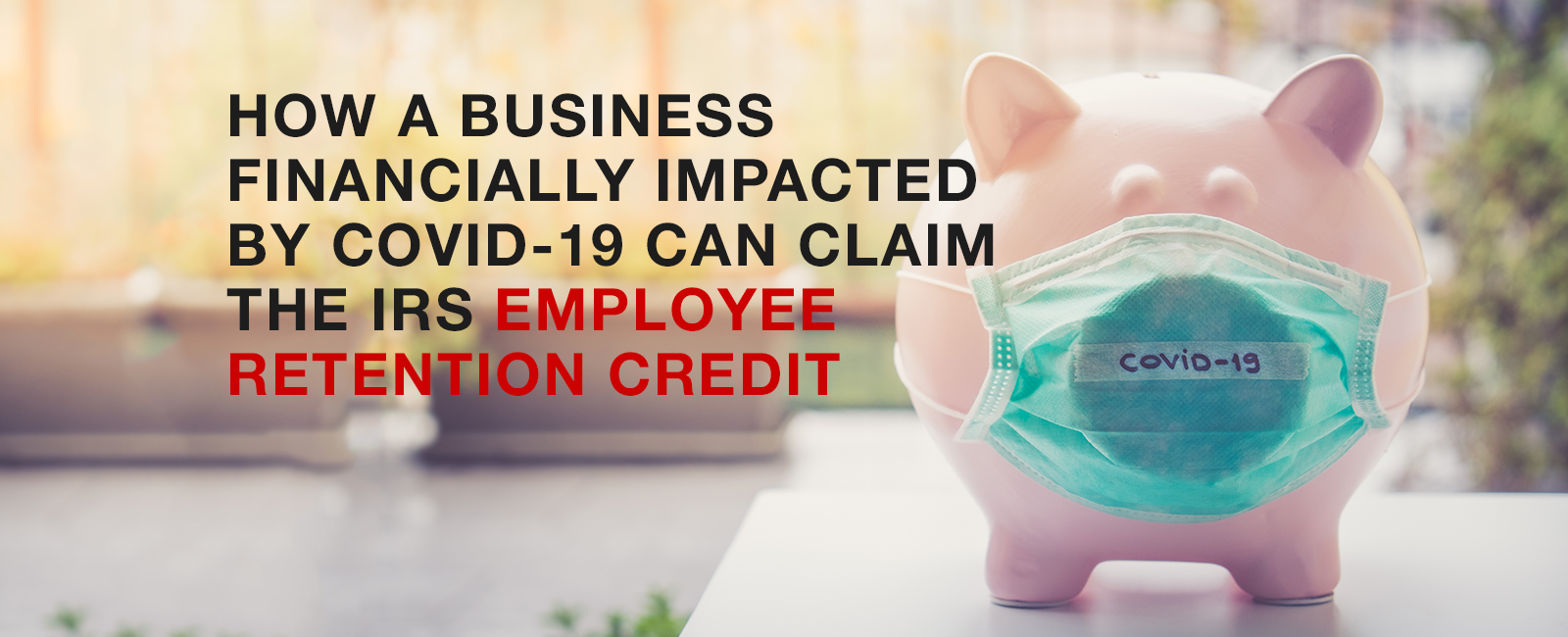On March 27, 2020 President Trump signed the $2 trillion Stimulus Bill formally known as the Coronavirus Aid, Relief and Economic Security [CARES] Act (the “CARES Act”) to provide assistance to workplaces and employees. The CARES Act provides many benefits intended to deliver cash into the hands of individuals and businesses, as well as many other tax provisions. One of the most publicized provisions is the launching of the Employee Retention Credit which is designed to encourage businesses to keep employees on their payroll. The refundable tax credit is 50% of up to $10,000 in wages paid by an eligible employer whose business has been financially impacted by COVID-19.
Does my business qualify to receive the Employee Retention Credit?
The credit is available to all employers regardless of size, including tax-exempt organizations. There are only two exceptions: State and local governments and their instrumentalities and small businesses who take small business loans.
Qualifying employers must fall into one of two categories:
- The employer’s business is fully or partially suspended by government order due to COVID-19 during the calendar quarter.
- The employer’s gross receipts are below 50% of the comparable quarter in 2019. Once the employer’s gross receipts go above 80% of a comparable quarter in 2019, they no longer qualify after the end of that quarter.
These measures are calculated each calendar quarter.
How is the credit calculated?
The amount of the credit is 50% of qualifying wages paid up to $10,000 in total. Wages paid after March 12, 2020, and before Jan. 1, 2021, are eligible for the credit. Wages taken into account are not limited to cash payments, but also include a portion of the cost of employer provided health care.
How do I know which wages qualify?
Qualifying wages are based on the average number of a business’s employees in 2019.
- Employers with less than 100 employees:If the employer had 100 or fewer employees on average in 2019, the credit is based on wages paid to all employees, regardless if they worked or not. If the employees worked full time and were paid for full time work, the employer still receives the credit.
- Employers with more than 100 employees:If the employer had more than 100 employees on average in 2019, then the credit is allowed only for wages paid to employees who did not work during the calendar quarter.
I am an eligible employer. How do I receive my credit?
Employers can be immediately reimbursed for the credit by reducing their required deposits of payroll taxes that have been withheld from employees’ wages by the amount of the credit.
Eligible employers will report their total qualified wages and the related health insurance costs for each quarter on their quarterly employment tax returns or Form 941 beginning with the second quarter. If the employer’s employment tax deposits are not sufficient to cover the credit, the employer may receive an advance payment from the IRS by submitting Form 7200, Advance Payment of Employer Credits Due to COVID-19.
Eligible employers can also request an advance of the Employee Retention Credit by submitting Form 7200.
Can I still claim the Employee Retention Tax Credit if I received funding from the Paycheck Protection Program?
No. An employer who receives a loan under the Paycheck Protection Program is not eligible to also claim an employee retention tax credit under the CARES Act.
Where can I get more information?
The IRS has established a special section focused on steps to help taxpayers, businesses and others affected by the coronavirus and as information becomes available, the IRS will be updating this special page on its website. You can also check out the KahnTaxLaw Coronavirus Resource Center.
What Should You Do?
You know that at the Law Offices Of Jeffrey B. Kahn, P.C. we are always thinking of ways that our clients can save on taxes. If you are selected for an audit, stand up to the IRS by getting representation. Tax problems are usually a serious matter and must be handled appropriately so it’s important to that you’ve hired the best lawyer for your particular situation. The tax attorneys at the Law Offices Of Jeffrey B. Kahn, P.C. located in Orange County (Irvine), Los Angeles (including Long Beach and Ontario) and elsewhere in California are highly skilled in handling tax matters and can effectively represent at all levels with the IRS and State Tax Agencies including criminal tax investigations and attempted prosecutions, undisclosed foreign bank accounts and other foreign assets, and unreported foreign income. Also if you are involved in cannabis, check out what a cannabis tax attorney can do for you. And if you are involved in crypto currency, check out what a bitcoin tax attorney can do for you.


